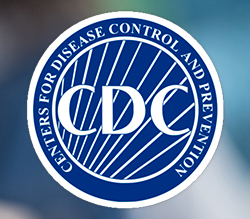
Common Flu Myths
There seems to be a lot of confusion about flu and the benefits of the flu vaccine. Below are some of the most common myths about flu and flu vaccine. Test your knowledge and help your community by spreading the facts, not the flu.
Myth #1: I don’t need a flu shot if I’m healthy.
The truth is, with rare exception, everyone six months and older should get a flu shot – even if you’re healthy. The flu shot protects you and those around you who are at increased risk for serious complications from flu . Those most at-risk include: adults 65 and older; and people of any age with chronic medical conditions like asthma, diabetes and heart disease; young children; and pregnant women.
Because of the COVID-19 pandemic, it is more important now than ever to get a flu shot to prevent additional illnesses, hospitalizations and deaths, and conserve healthcare system resources for those who need them most.
Myth #2: I can wait and see if it will be a bad flu season.
The truths is, CDC recommends getting a flu vaccination as soon as possible to protect you and those around you from flu this fall and winter. It takes two weeks for the vaccine to take full effect. Don’t wait to vaccinate
Myth #3: The flu vaccine will protect me against COVID-19.
The truth is, the flu vaccine will help protect you against flu. It will not protect you against COVID-19. You can get vaccinated for flu and COVID at the same time. Learn more about the similarities and differences between flu and COVID-19, including symptoms, testing and severity .
Myth #4: Wearing a mask, watching my distance and washing my hands is enough to prevent flu.
The truth is, these are very effective germ-prevention strategies and we should all continue to do these things consistently and correctly everyday. However, getting a flu vaccine is still the best way to prevent the spread of flu. Find flu vaccine near you using the Vaccine Finder at right or visit vaccines.gov .
Myth #5: Flu vaccine isn’t safe.
The truth is, the benefits of getting a flu vaccine outweigh the risks for most people. The flu vaccine has been around for years and has been shown to reduce flu illnesses, risk of serious flu outcomes and the severity of illness in people who get vaccinated, but still get sick. Learn more about flu vaccine safety .
Myth #6: The flu shot gave me the flu.
The truth is, the flu vaccine cannot cause flu. The flu shot contains inactivated (not live) virus. The nasal spray flu vaccine contains live virus, but the viruses are changed so they cannot give you flu. Some reasons people may think the flu vaccine gave them flu include:
- You may have been experiencing flu vaccine side effects – Like any medical product, vaccines can cause side effects. Side effects of the flu vaccine are generally mild and go away on their own within a few days. Common side effects from the flu shot include: Soreness, redness, and/or swelling from the shot; headache; fever; nausea; and muscle aches. If you think you are having a severe allergic reaction or other emergency that can’t wait, call 9-1-1 and get to the nearest hospital. Otherwise, call your doctor.
- You became sick from a respiratory virus other than flu.
- You were exposed to flu before the vaccine took full effect – It can take up to two weeks for the vaccine to be fully effective
- You were exposed to a strain of flu not covered by the vaccine. The flu vaccine covers the most common strains from the previous year. Flu strains can mutate (change) in unpredictable ways from one year to the next. Side effects of the flu vaccine are generally mild. If you think it is a severe allergic reaction or other emergency that can’t wait, call 9-1-1 and get to the nearest hospital. Otherwise, call your doctor.
Vaccinated people who do get sick with flu normally experience milder symptoms than those who are not vaccinated. It could spare you from having to see a doctor, missing work due to illness, being hospitalized or worse. Check with your doctor promptly if you are at high risk of serious flu complications and you have flu-like symptoms .
Myth #7: Antiviral drugs make vaccination unnecessary
Antiviral drugs prevent the virus from spreading and replicating, but they are considered a second line of defense. They work best when given within the first day or two of symptoms appearing, but they are still recommended after that time for high-risk patients and those sick enough to be hospitalized.
If you get sick with flu, antiviral drugs may be a treatment option. Most people with flu have mild illness and do not need medical care or antiviral drugs. If you get sick with flu symptoms, in most cases, you should stay home and avoid contact with other people except to get medical care.
Studies show that flu antiviral drugs work best for treatments when they are started within 2 days of getting sick. However, starting them later can still be helpful, especially if the sick person has a high-risk health condition or is very sick from flu (for example, hospitalized patients).
Updated November 1, 2022, 5:41 PM





